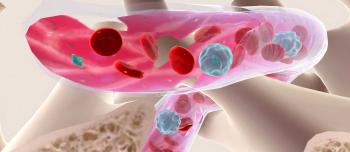Roche recently announced that is has joined the World Federation of Hemophilia (WFH) Humanitarian Aid Program. The company joins with Roche Group members Chugai and Genentech in a commitment to donate the product Hemlibra®, plus funding to deliver integrated care development training to ensure that “local infrastructure and medical expertise” are available to optimize use of the donated therapy.
Hemlibra® is a laboratory-engineered protein that works by performing a key function in the clotting cascade that is normally carried out by the factor VIII (FVIII) protein, which is deficient in individuals with hemophilia A. The “cascade” is an intricate series of chemical and molecular reactions between clotting factors that lead to clot formation. In this case, Hemlibra® binds to and bridges two other key clotting proteins, activated factor IX and factor X, important components of the cascade normally performed by FVIII. Hemlibra® is also unique in its administration as the therapy is delivered subcutaneously through an injection just under the skin.
Hemlibra® received FDA-approval in the fall of 2017 for routine prophylaxis to prevent or reduce the frequency of bleeding episodes in adults and children with hemophilia A with FVIII inhibitors. Approximately a year later the therapy received expanded approval for routine prophylaxis to prevent or reduce the frequency of bleeding episodes in adults and children, ages newborn and older, with hemophilia A without FVIII inhibitors.
According to a Roche press release, the donation will provide prophylactic treatment with Hemlibra® to as many as 1,000 people with hemophilia A in developing countries, over the course of five years, with a focus on high-need patients, such as people of all ages with FVIII inhibitors and children without factor VIII inhibitors. Access to prophylactic treatment is extremely limited in the developing world, a situation that WFH is trying to improve. The WFH Humanitarian Aid Program currently provides prophylactic therapy to approximately 1,500 people with hemophilia A.
“Thanks to Roche’s donation, significantly more people with haemophilia A will be able to receive prophylaxis through the WFH Humanitarian Aid Program. Importantly, the donation will also provide a treatment option for people with haemophilia A with factor VIII inhibitors who previously had very limited or no treatment,” said Alain Weill, WFH President. “Increasing access to prophylactic treatments can make a profound difference in countries where haemophilia A remains underdiagnosed and untreated.”
Source: Roche press release dated February 6, 2019





